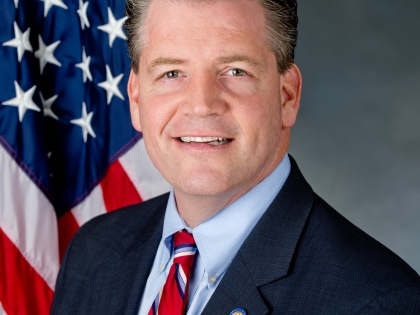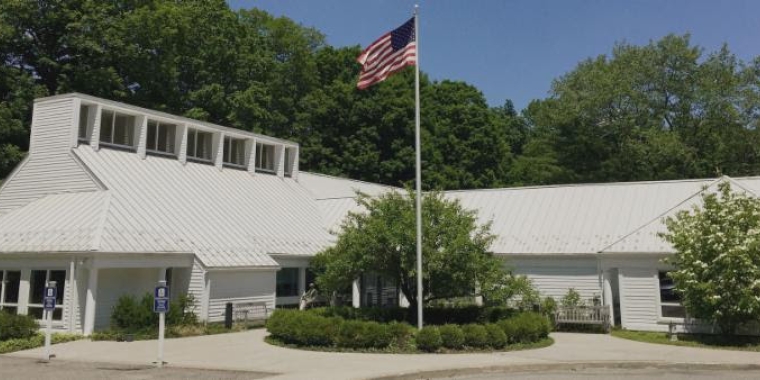
Senator Murphy's legislation drives home importance of bus operators having access to Epipens
June 20, 2017

Albany, NY - In November 2015, a 17-year-old high school student in Michigan died after experiencing an allergic reaction to peanuts on a school bus. In a situation where every second counts, he might have been saved if there had been an EpiPen onboard.
As the parent of a child with severe allergies, Senator Terrence Murphy knows it is imperative to administer epinephrine at the first sings of a reaction. A bill sponsored by Senator Murphy, (S6005A) will now allow school bus drivers across New York State to administer epinephrine to a child having a severe allergic reaction.
Food and other allergies such as bee stings and airborne irritants are an ever-increasing danger to children. According to the Centers for Disease Control, the prevalence of food allergies among children 0-17 years of age has jumped from 3.4% in 1999 to 5.7% in 2017. If consumed by a child with an allergy, foods such as peanuts, wheat, soy, eggs and milk, can trigger anaphylaxis, a serious medical emergency that lead to the closing off a child's airway in seconds, resulting in respiratory arrest followed by cardiac arrest, which often leads to death. Epinephrine works to immediately reverse the effects of anaphylaxis and is critical in the treatment of a severe allergic reaction.
"In many communities across the state, school children spend anywhere from ten minutes to over an hour on a school bus each day," said Senator Murphy. "My bill will ensure that children, especially those who are very young, have additional adults that will be able to intervene should a child experience a reaction or anaphylaxis while on a school bus. This legislation could add to the health and safety of thousands of children across the state."
New Castle Supervisor Rob Greenstein stated, "Whether it's distracted driving, railroad safety or tackling the heroin and opioid epidemic, Senator Terrence Murphy has a proven track record on focusing on important safety measures. For kids with allergies, the consequences of exposure to the wrong food can be fatal. However, we have the tools to prevent these tragedies from happening. This legislation will protect kids on schools buses. I commend Senator Murphy for his efforts to protect the safety of our children."
"Giving drivers the tools they need to respond in an emergency situation is an important step forward," said Peekskill Police Chief Eric Johansen. "This is common sense legislation that will ultimately prevent tragic consequences and save lives."
Stacey Saiontz is a lawyer, but her most important responsibility is being a mother to a child with severe food allergies. "Thank you Senator Murphy for not only recognizing the need for this life saving bill but for your hard work to make it a reality. Several thousand New York school children with food allergies are currently bussed to and from school each day. When a child experiences anaphylaxis, there is simply not enough time to wait for emergency personnel to arrive on the scene. Recently, a school bus driver in another state saved a student's life when emergency personnel could not arrive on the scene in time. I am so pleased that New York school bus drivers will be able to do the same."
Other states including Massachusetts and Illinois have recently passed legislation to include school bus drivers and other contracted staff among those who can assist or directly administer an epinephrine auto-injector.
Current law allows for those employed by school districts and other educational institutions to administer epinephrine. Those who work for agencies contracted out with a school district or other educational institutions for the transportation of students are not allowed to assist with or administer epinephrine
The impetus for Senator Murphy's bill can be traced to many incidents, but one that received national attention occurred in Agawam, Massachusetts in October 2014.
A 15-year-old high student on Susan Lecrenski's route known to have a severe nut allergy experienced an intense reaction, possibly triggered by airborne particles from the student sharing her seat.
The girl began coughing, then choking, and was unable to breathe. Although she was less than a minute away from the high school, Lecrenski knew she had to act immediately. Unfortunately, the girl had left her EpiPen at home. Lecrenski radioed the school that there was an emergency on board and she would need an ambulance. Stopping the bus on the side of the road, she then yelled out asking if anyone had an Epi-pen. Another student had one and Lecrenski administered the epinephrine, effectively saving the girl's life.
Lecrenski was surprised when she was told she shouldn't have administered the epinephrine for liability reasons. Her reaction was to say it would have been a liability if she hadn't.
Share this Article or Press Release
Newsroom
Go to NewsroomSenator Murphy heats up Somers with $100,000 investment in solar energy
September 25, 2018

Senator Murphy's $250k grant helps rebuild Golden's Bridge Firehouse
September 24, 2018


